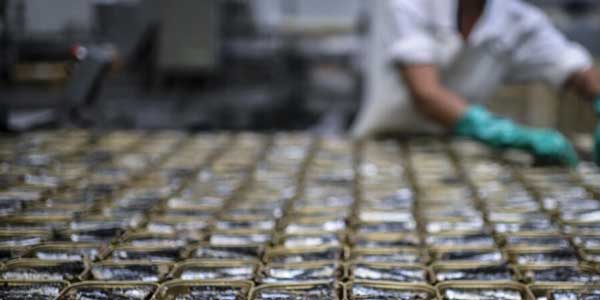The sardine, a simple yet cherished staple of Portuguese culture, takes center stage at the lively street parties that spontaneously erupt across the nation during the summertime.
Accounting for a substantial two-thirds of Portugal's annual fish harvest, these humble fish have given rise to a thriving canning industry.
Goncalo Ortega, a spirited 27-year-old reveller at Lisbon's Sardine Festival, succinctly captures the essence of this cherished tradition: "Where there are sardines, there are people, beer, friends, and a sense of community. Sardines bring people together." Almost every hamlet and town, regardless of size, boasts its own summer festivities, replete with open-air dance celebrations and the irresistible fragrance of sardines sizzling on open barbecues.
Alvaro Garrido, an authority on the economic history of the fishing industry, elucidates the significance of sardine fishing along the Portuguese coast: "The sardine is the most abundant, widely distributed fish along Portugal's shores. It holds a profound place in people's diets, not only in fishing villages but also in major urban centers."In this regard, sardine fishing carries immense social importance, even eclipsing Portugal's iconic salted cod.
Portugal claims the distinction of being the European Union's foremost consumer of fish, but most of its fish, notably the renowned salted cod featured prominently in traditional cuisine, is imported from more northern waters. Garrido notes, "Portugal sustains a chronic trade deficit in fish products due to its reliance on salted cod imports. This deficit is partially offset by exports of canned sardines."
Agonia Torrao, the captain of a fishing vessel berthed in the central Portuguese port of Peniche, offers her perspective on the allure of sardine fishing: "Sardine fishing is unique because it embodies tradition. Everyone adores sardines, especially when they're of exceptional quality." She explains, "Our coastlines teem with an abundance of sardines, which is why we continue to fish for them." Her sentiments reflect the deep-rooted connection between the Portuguese people and these small, silvery treasures of the sea.
Despite its profound historical significance and its central place in Portuguese identity, the fishing industry faces a troubling decline. According to national statistics, there were 14,000 fishermen in Portugal last year, operating on 7,600 vessels—a figure that represents nearly a third fewer than two decades ago.



























